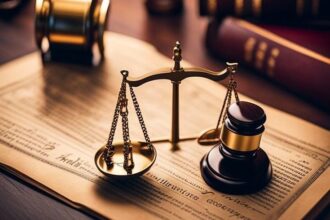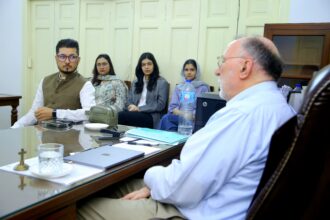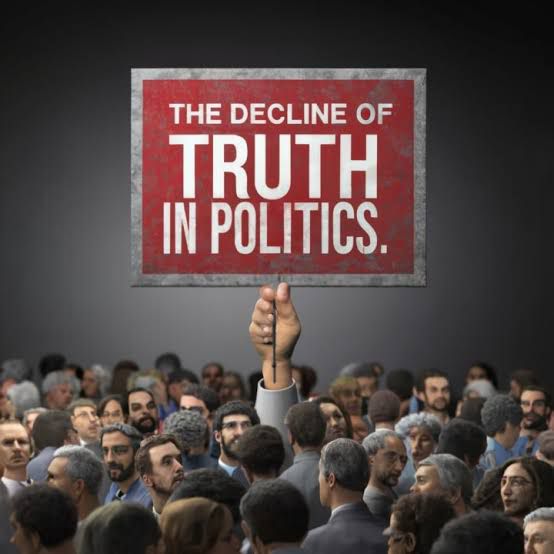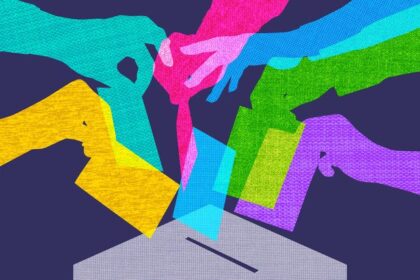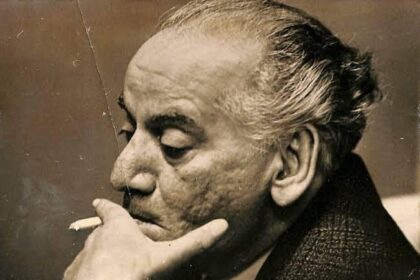The Rise of Post-Truth Politics
With the advent of modern technology, people have started to live in echo chambers where information carrying a fragment of reality reaches them and reinforces their previously held beliefs. This is being termed a post-truth era where facts are not relevant and personal beliefs are more important than truth. Post-truth politics is also a politics of emotion rather than rational political debate. This lack of rational debate can become destructive for a society and create anti-intellectual sentiments in the public.
Defining Post-Truth Politics
Post-truth politics can be defined as a political culture in which appeals to the emotions of the masses are made by politicians rather than making rational appeals. The term post-truth politics was explained by David Roberts in a blog post for Grist on April 1, 2010, as “a political culture in which politics have become almost entirely disconnected from policy.” He discusses that this disconnect can become a deterring political challenge as effective policy-making is the goal of politicians.
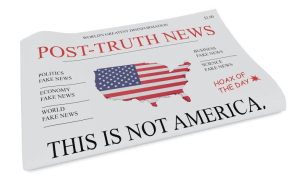
The Threat to Democracy
Democracy is a system of governance in which it is expected that the people are rational agents who logically decide their representatives on the basis of the ground realities by reasoning what is best for them. But what has been happening, in reality, is that people first choose their representatives, and then they find relevant facts and arguments to support their decision, and this is why post-truth politics is threatening.
Manipulation and Misinformation
In post-truth politics, politicians issue warnings of threats that do not exist and make promises with no solid commitment to fulfill them just to gain votes and win elections. When politicians speak, they do not care to speak the truth; rather, they speak about what people are more likely to pay attention to and listen to. When it comes to research and expert opinions, politicians do not take evidence-based decisions to formulate policies; rather, they selectively cherry-pick evidence that supports their decisions and policies.
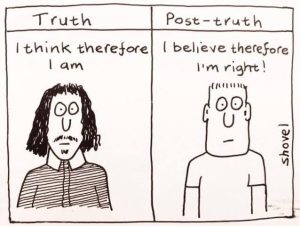
The Erosion of Political and Civil Discourse
This creates a gap between political debate and facts. Politicians tell lies and target their adversaries with baseless claims with the purpose of hijacking voters’ attention and creating confusion and anger. Consequently, all the useless drama directs the political debate away from policymaking. Not only political discourse but also the quality of civil discourse is impacted by it due to the absence of facts. In discussions, people struggle to find solid ground to support their arguments. A careless, abusive, post-truth political discourse reflects the state of politics in a country.
Aldous Huxley, in his book Brave New World, says that there would be no need to burn books anymore because people would no longer read them. This is the threat the world of alternative facts and post-truth poses today—the threat that the constitution, policies, and factual reports would be sidelined, truth would be irrelevant, ignorance would be rampant, and emotions and personal beliefs would take their place.
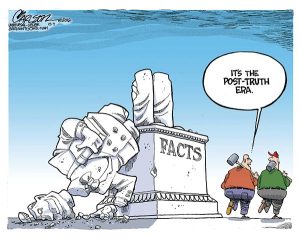
The Depoliticization of Politics
The primary role and responsibility of a politician is to make policies, but politics is gradually being depoliticized, which means that the politicians are not serving their primary purpose. Most voters gain political information through media outlets, and whatever is being broadcasted on media impacts the agenda of political discussion for the general public.
The Danger to Democracy and Freedom
For a democratic society, voters are considered rational agents who can decide their future themselves. The subversion of truth is a danger to democracy and freedom. Without healthy political debate, truthful public discourses, and transparency, people cannot be free from the dangers of lies and propaganda. Democracy cannot thrive on lies; truth is fundamental to its existence.
Moreover, the quality of the political discourse determines the standard of politics in a country. As politicians are representatives of the people, they cannot carelessly state their own personal ideas and sentiments; rather, they have a responsibility to be precise and truthful in their speech and actions.

